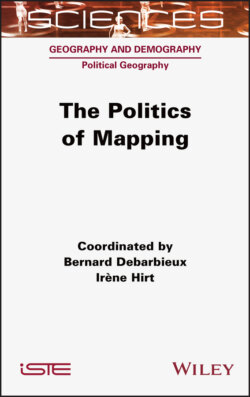Читать книгу The Politics of Mapping - Bernard Debarbieux - Страница 11
I.1. Theoretical and conceptual debates
ОглавлениеThe focus on the relationship between mapping1, on the one hand, and politics or power, on the other hand, is certainly not new, or even recent. For centuries, particularly in the Christian, Chinese and Arab-Muslim worlds, the people who commissioned maps (princes, ministers or heads of state) and the cartographers clearly believed that maps must, first and foremost, serve the objectives of knowledge and the control of territories by sovereigns, armies and state administrations.
In the Western world, the proximity between maps and political power became less visible around the 18th century, when the discourse among cartographers began to focus on the techniques of production, the accuracy of the representation and the scientific value of the knowledge produced. This shift became even more pronounced in the 20th century when the scientific analysis of the map corpus and reflection on map production itself became essentially guided by a belief in the progress of techniques and knowledge. This led to the triumph of verism in the representation of the Earth’s surface, accuracy in the representation of data and optimization in the communication of knowledge. This threefold objective was achieved through the increasing sophistication of modern societies, techniques and policies. A few key figures in cartographic thinking in the second half of the 20th century embodied this ambition. Among these figures, Bertin (1983 [1967]) reflected on the visual and semiological effectiveness of maps. However, from the 18th to the 20th centuries, this discourse on the efficiency of maps was often voiced by authors working directly or indirectly for political authorities, sometimes even within their institutions. The added value maps held for the exercise of power tended to escape critical reflection, since it became consubstantial with cartographic knowledge, on the one hand, and with government know-how, on the other hand.
